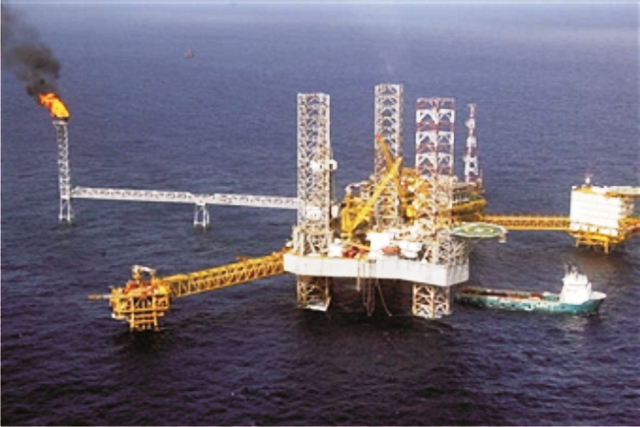Opinion
Privatising Nigeria’s Petroleum Industry (111)

Petroleum products
supply should really be considered as a public service obligation and service of general common interest to Nigeria; hence, the government should see itself as under obligation to make them available, reliable and sustainable.
In the United Kingdom, for example, electricity and gas supply to British citizens are so considered as public service obligation by the British Government, hence, every citizen in the UK is entitled to be supplied of these products but also required to pay reasonable prices as determined by the markets, not as fixed by government. Therefore, the provision of energy security infrastructure is both the function of the government and the industry but more of the government; hence it may be the reason why governments will usually intervene in the sector globally.
It is also the responsibility of the government to set the right legal framework that could reduce the dependence on petroleum by diversifying to renewable technologies and solid mineral sector.
Nigeria is now poor with rapidly depleting sovereign wealth fund, its national reserve, and hence the country needs enough capital to engage in alternative energy development. It is important that removing subsidy might help to save funds needed for diversification of Nigeria’s energy resource base.
Meanwhile, under the deregulated industry, which envisions the removal of subsidies by government, government would be expected to play a passive role while leaving the NNPC, IOCs, and independent marketers to directly provide petroleum services without fixing prices for them. However, the government should be ready to guarantee payment for spare capacities, and ensure cost recovery for the providers of services to the domestic sector, assuming the price fixed by the government is inadequate for the providers of petroleum products to supply domestic market with minimal profit margin.
This may explain why it is difficult to understand the policy direction of the government in fixing product price for the PMC as its supposed intention was for market forces of demand and supply to regulate and determine prices.
One advantage of the current pseudo-deregulation approach is that the price band would make the importers not to sell above the government regulated price of N145. However, there would be no guarantee that they might not sell above this range, if the international products price is higher than their expected margin. When this is the case, only NNPC outlets would sell PMS below N145 and Nigerians would complain that the industry is not efficiently managed.
Thus, taking into account that all foreign import of petroleum products may not be from one country or one source, it would be neater for the government to remove the pump. price sealing as the market would regulate itself in due course.. The success story of the telecom sector would have been a good teacher to our able. economic advisers on this matter.
‘However, keeping the price of kerosene and diesel at normal. price margin is a good and sensible decision. This is because the poor makes use of kerosene to meet his domestic needs more than the rich who have an average of four cars on the road at the same time.
The increase in price of petrol might inculcate a sensible conduct for energy conservation and a win win game for environmental protection in Nigeria. This is as a result of the likely reduction in the number of cars that would ply the roads in the era of scarcity. More cars on the road would contribute more air pollution and lead to the increase in climate change risks for the country.
Again, making kerosene product more available than petrol would promote sustainable environment. This is because the rural poor would not have to fell more wood for his energy uptake thereby conserving the environment. Similarly, an affordable and realiable supply of diesel which is mainly used by industries, will also encourage the manufacturing sector. Hence, the Federal Government should be applauded for retaining the old prices for these products.
On the whole, it is important for government to set out early its economic policy framework for the petroleum industry and in a more predictable manner; although, it may be difficult for government to cease from intervention in the industry. However, it is high time for NNPC to be fully commercialised. Government may still maintain its control by holding golden share in the commercialised NNPC.
Again, in order to have a sustainable petroleum industry, the need for regulatory stability cannot be over emphasised. The PIB must be passed without further delay .Although, we argued that the recent price hike for PMS is ill timed, Nigeria must be able to internalise the cost of production and supply of petroleum products by promoting a sustainable consumption culture. This would ensure fewer cars on the road which will drive down the supply for PMC.
Finally, should have been a proper consultation with Nigerians on this issue, especially given the backdrop of unpaid wages, biting economic hardship and social vices plaguing many states in Nigeria.
Dr Dike is a senior lecturer, RSUST, Port Harcourt.
Samuel C. Dike
Opinion
Policy Intervention: More Than Administrative Reform

Opinion
Redefining New Year Resolutions

Opinion
Trans-Kalabari Road: Work In Progress

-

 Sports2 days ago
Sports2 days agoTinubu Lauds Super Eagles’ after AFCON bronze triumph
-

 Sports2 days ago
Sports2 days agoFulham Manager Eager To Receive Iwobi, Others
-

 Sports2 days ago
Sports2 days agoAFCON: Lookman gives Nigeria third place
-

 Sports2 days ago
Sports2 days ago“Mikel’s Influence Prevent Some Players Invitation To S’Eagles Camp”
-

 News2 days ago
News2 days agoSERAP Sues Govs, FCT Minister Over Security Vote Spending
-

 Niger Delta2 days ago
Niger Delta2 days agoINC Polls: Ogoriba Pledges To Continuously Stand For N’Delta Rights … Picks Presidential Form
-

 Editorial2 days ago
Editorial2 days agoBeyond Accessing Bonny By Road
-

 Sports2 days ago
Sports2 days agoMan of The Match award Excites Nwabali

